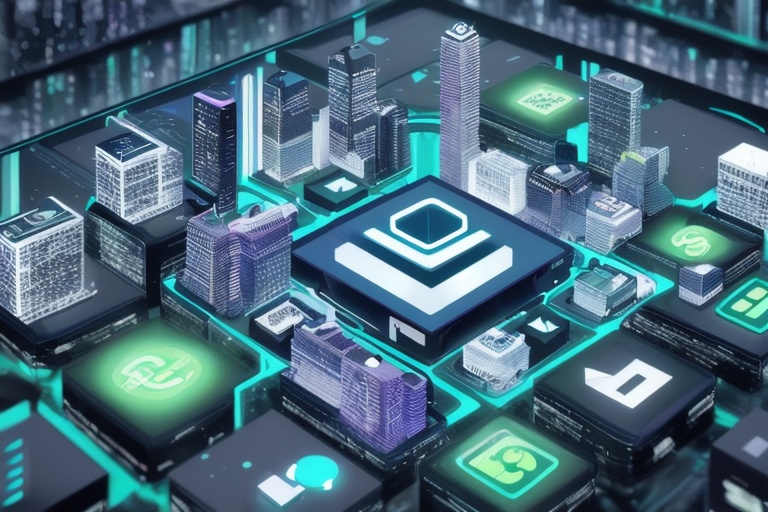Artificial Intelligence (AI) has steadily become a cornerstone of technological advancement, with the promise to fundamentally reshape our lives and the fabric of various industries. This transformative force spans from healthcare, where it enhances diagnosis and surgical precision, to education, where it tailors learning to individual student needs. As our world grows more interconnected with technology, integrating AI across fields is not just an advantage; it's becoming a necessity.
Artificial Intelligence (AI) has steadily become a cornerstone of technological advancement, with the promise to fundamentally reshape our lives and the fabric of various industries. This transformative force spans from healthcare, where it enhances diagnosis and surgical precision, to education, where it tailors learning to individual student needs. As our world grows more interconnected with technology, integrating AI across fields is not just an advantage; it's becoming a necessity.
AI in Healthcare: Revolutionizing Diagnosis and Treatment
The advent of AI in healthcare is nothing short of remarkable, introducing rapid and more accurate diagnostics, and assisting in surgical procedures. By analyzing vast amounts of medical data, AI systems can identify patterns and diagnose conditions much faster than traditional methods. This not only speeds up the process but potentially increases survival rates by allowing earlier intervention.
In surgery, robots equipped with AI are providing assistance to surgeons, enabling more precise and less invasive operations. These advancements promise to enhance patient recovery times and reduce hospital stays, significantly reducing the strain on healthcare systems.
AI in Education: Personalizing the Learning Experience
The potential for AI in education lies in its ability to deliver highly personalized content that adapts to the learning style, pace, and proficiency of each student. This tailored approach can revolutionize educational outcomes, providing support where teachers are unable to cater to individual student needs due to time constraints and student-to-teacher ratios.
Interactive AI tutors can facilitate learning beyond the classroom, making education more accessible and efficient. This could have a profound impact on literacy rates and the overall educational attainment of future generations.
AI in Marketing: Gleaning Consumer Insights
Marketers are harnessing AI to achieve a deeper understanding of consumer behaviors and preferences, allowing for more targeted and effective campaigns. AI's data analysis capabilities can predict trends and preferences, enabling marketers to reach potential clients with precise timing and messaging.
The use of AI in marketing doesn't just improve consumer engagement—it also streamlines marketing budgets by optimizing campaign strategies and reducing wastage on ineffective marketing tactics.
AI in Agriculture: Boosting Productivity and Sustainability
AI technologies are revolutionizing agriculture by improving disease detection in crops, analyzing soil conditions, and weather patterns for better crop management. These advancements lead to higher yields and more efficient resource use, which is essential in a world facing climate change and a rapidly growing population.
Farmers can benefit from AI-driven insights to make smarter decisions on water usage, planting times, and crop rotation, fostering sustainable farming practices that are vital for the food security of future generations.
The Origins and Evolution of AI
Contrary to popular perception, AI is not a modern invention. Its roots can be traced back to ancient Greek mythology and the earliest concepts of automated beings. The groundwork for AI as we understand it today was laid in 1943 with the introduction of the first model of artificial neurons. Just over a decade later, in 1956, John McCarthy coined the term "Artificial Intelligence," setting the stage for the rapid development that would follow.
AI can generally be divided into two primary categories: Narrow AI, adept at performing specific tasks, and General AI, which aims to emulate a wider range of human cognitive abilities. While Narrow AI is already deeply integrated into our daily lives through applications like facial recognition and language translation, General AI represents an aspirational horizon, capturing the imagination of researchers and futurists alike.
Advancing Industries and Transforming Lives
As AI technology progresses, its impact on industries from banking to transportation, and beyond will continue to deepen. Not only does AI streamline operations, enhance efficiencies, and reduce costs, but it also opens up entirely new possibilities for innovation.
In the financial sector, AI plays a decisive role in fraud detection and offers personalized customer services. In manufacturing, AI-driven robots and systems increase production capabilities, quality control, and maintenance predictability, leading to more robust supply chains.
The automotive industry is also on the cusp of a revolution with the advent of AI-powered autonomous vehicles. These self-driving cars promise to drastically reduce the incidence of traffic accidents and revolutionize the concept of personal and public transportation.
Embracing AI Responsibly
Despite its far-reaching potential, the rise of AI brings with it pressing ethical considerations. It is incumbent upon us to establish robust guidelines for the responsible use of AI technologies, ensuring they serve the greater good and do not result in unintended consequences.
Key concerns such as data privacy, security, employment impacts, and transparency in decision-making processes need to be rigorously addressed. There is a clear necessity for policies that strike a balance between innovation and the protection of individual rights and societal values.
The Road Ahead: Shaping an AI-Driven Future
As we gaze into the future, it's evident that AI will continue to play a pivotal role in shaping new paradigms in technology and society. By thoughtfully integrating AI into our daily lives and industries, we have the opportunity to unlock untapped potential and foster a future that is not only more efficient and productive but also more harmonious and equitable.
Embracing the possibilities that AI presents requires active engagement from all sectors of society—individuals, businesses, and governments alike. Through collaboration, we can shape a technologically advanced society that leverages AI for the benefit of all.
As we advance, the promise of AI stands clear: a tool that, when guided by thoughtful consideration and human wisdom, has the potential to not only revolutionize human civilization but to propel us toward a better, more understanding world.
Information for this article was gathered from the following source.




